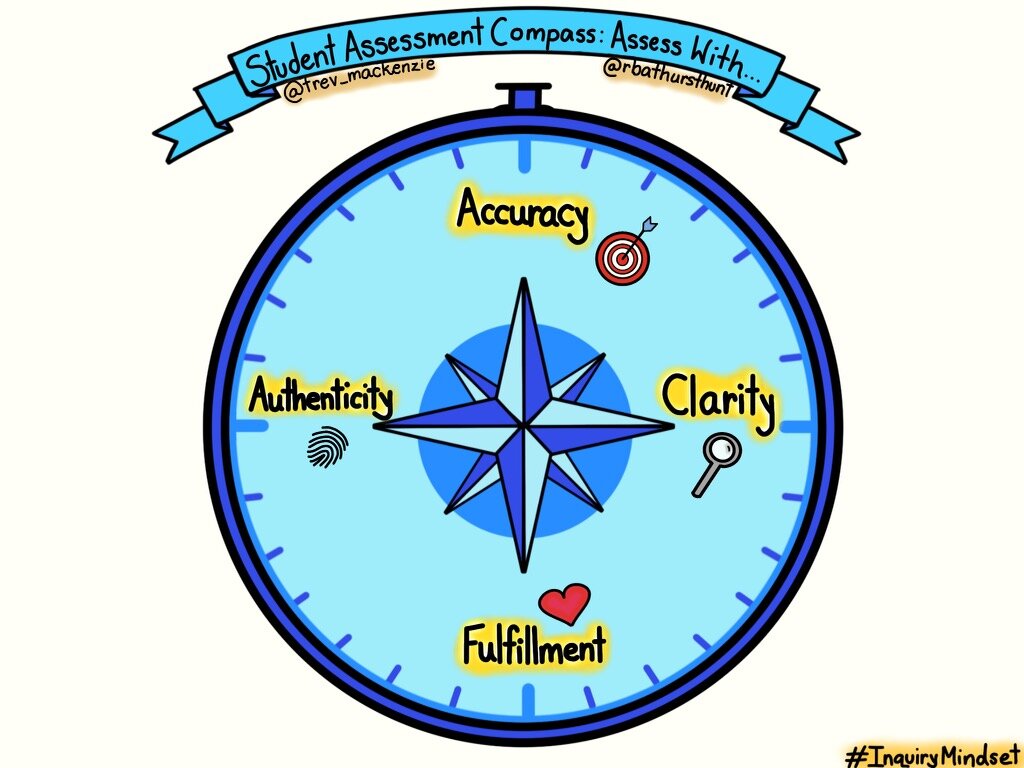As part of the release of Inquiry Mindset Assessment Edition, I am sharing with you some of the sketchnotes from the book. This one is titled the Student Assessment Compass. It frames chapter nine and aims to support teachers in coaching and modelling the conditions for students to self-assess with accuracy, with clarity, for fulfillment, and authenticity. It offers up a visual process for teachers and students to work together in assessment to slowly, over time, have students become competent self assessors in any context.
From the book: “The behaviours, tasks, routines, and protocols, as they have been scaffolded throughout this book, aim to provide you and your stu- dents with the opportunity to make effective change so peer and self-assessment can benefit all who participate in this process. The summation of this scaffolding and the ongoing mindset of inquiring into our learning, our thinking, and ourselves presents us with the language and expertise to maximize assessing together.
Talking about peer and self-assessment through the lens of the Assessment Compass is extremely helpful when it comes to giving agency over learning to students. The Assessment Compass com- prises four cardinal assessment directions: accuracy, clarity, fulfill- ment, and authenticity. These points require our constant refine- ment, discourse, care, and attention to ensure that our assessment practice is something on which we can rely regardless of the context or situation.”
For release details, access to the collection of free supplementary resources (see below), and bulk order process, stay tuned here over the coming weeks.
The collection of free supplementary resources includes:
20+ page Book Club Resource to guide collaborative reading and group professional development.
Younger Years Resource: a 35+ page resource written by co-author of the first Inquiry Mindset Rebecca Bathurst-Hunt. This resource is specifically for teachers of the younger years and is full of extensions activities and ideas to take your reading further.
Teacher Journal: a 15+ page resource full of guiding questions to help teachers reflect and plan for a more student-centered learning experience.
Student Journal: another 15+ page resource full of guiding questions to help students reflect on themselves as learners and present the opportunity to begin learning from a strength-based perspective.
Guiding Questions Resource: a collection of more than 200 guiding questions from Inquiry Mindset Assessment Edition all in one place and categorized, ready for you to use in your planning of inquiry with your students.
Learner Profile Slides: a resource for your students to help reflect and organize who they are, what curiosities and interests they have, and what learning strengths and stretches they possess.
NEW Sketchnotes: all of the new sketchnotes created by Rebecca Bathurst-Hunt will be available for download for you to use with your colleagues and your students.


